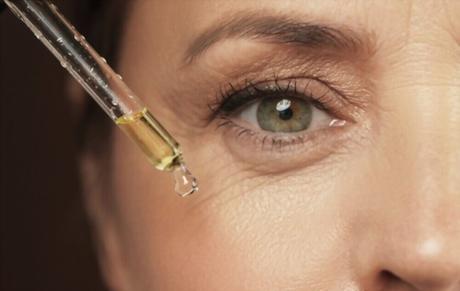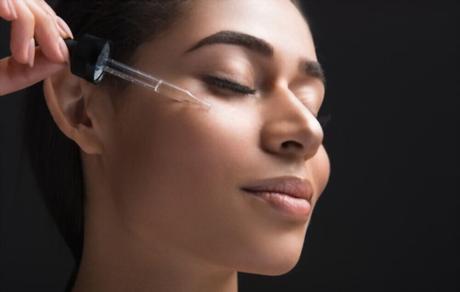
What can hyaluronic acid serum do for your face?
Find out.
What is Hyaluronic Acid?
Did you know hyaluronic acid occurs in your body? Hyaluronic acid is a substance that occurs in various areas of your body, such as your skin, joints, and eyes.
Its role is to keep water in the body cells and provide moisture to these areas of your body.
I know you might be thinking: “Since hyaluronic acid already occurs in my skin, why do I need to apply the hyaluronic acid serum?”
Here’s why…
As you get older, hyaluronic acid in your body starts to decrease.
You need moisture in your body and skin regularly, so to achieve this, hyaluronic acid supplements or serums can help.
What Can Hyaluronic Acid Serum Do for Your Face?
The hyaluronic acid serum is a popular treatment option for people with dry skin or facial wrinkles. Hyaluronic acid is a natural moisturizer that can help keep your skin healthy and hydrated.
When applied topically, hyaluronic acid can help to restore moisture to your skin.
This can help reduce the effect of dry skin and the appearance of wrinkles. It can help improve your skin’s overall health.
Hyaluronic acid serum can also be used to treat other skin issues, such as:
- Acne
- Psoriasis
- Dermatitis
- Wounds
It does a good job of reducing skin wrinkles and facial lines.
Talking to a skin care professional can help you pick the best hyaluronic acid serum for your skin.
How Often Should You Use Hyaluronic Acid on Your Face?
You can use the hyaluronic acid serum on your face 2 times a day. This is when you do your morning skincare routine and night skincare routine.
But it’s always best to follow the product’s instructions.
Only make sure you’re applying it on damp skin and not on dry skin. This will help it hold in the moisture better.
Some people do not have problems using it more than twice a day because of its hydrating effect, but the minimum amount of time to use hyaluronic acid is twice daily.
How To Use Hyaluronic Acid Serum On Face

- Start with a face cleanser: use a face cleanser that suits your skin to carefully clean any facial dirt. The face cleanser will then make your skin damp.
- Apply the hyaluronic acid to your damp face: after using the face cleanser, apply the hyaluronic acid to your face. The hyaluronic acid serum will draw moisture from the little moisture you got from the cleanser and further increase hydration.
- Add a moisturizer to lock in that moisture: use a moisturizer after applying the hyaluronic acid serum to your face. This will help to retain the hydration and moisture and avoid it from drying out too fast.
- Add sunscreen before going out during the day: adding sunscreen is an effective way to further protect your skin when you go out during the day.
Do not use the hyaluronic acid serum as your first step in this process.
This can make the hydraulic acid start drawing the moisture from your skin, which isn’t what you want. You want added moisture and locked in moisture.
Use hyaluronic acid on your face after the face cleanser to retain the moisture on your face throughout the day.
How Long Does it Take for Hyaluronic Acid to Work?
According to Medical News Today, a study showed that hyaluronic acid works for:
- Anti-aging: it reduces wrinkles and facial lines for some persons within 2- 8 weeks.
- Wound healing: research showed that hyaluronic acid was more effective to heal wounds than wound dressers. It helped to reduce inflammation and prevent bacterial infection.
For hyaluronic acid serum, you can start to see differences in your skin within a few weeks. But it depends on your skin, how often you apply it, and the product.
Best Hyaluronic Acid Serum For Face
To pick out the best hyaluronic acid serum, you want to choose the ones that contain vitamins, retinol, plus other moisturizing agents or hydrators.
You can find some of the best hyaluronic acid serums in skincare stores and on Amazon.
What are the Side Effects of Hyaluronic Acid Serum on the Face?
Generally, there are no side effects of using the hyaluronic acid serum. It is safe and quite effective for the skin.
But if you are allergic to hyaluronic acid, you might experience irritation, itching, or redness of the skin. It is best to discontinue the product once you notice any allergic symptoms and consult your doctor.
Also Read: Goat Milk Soap Benefits for SkinVitamin C or Hyaluronic Acid: Which is Better for the Skin?
Hyaluronic acid works best in hydrating and trapping in moisture the skin, making the skin smooth and improving its elasticity; Vitamin C is well known to stimulate collagen production in the skin, brighten dark spotty areas, and even skin tone, and fight acne.
They both act as anti-aging treatments and can maximally improve the skin.
But choosing the one to use depends on your skincare regimen.
For example, are you aiming for more lubricating and moisturizing skin? Then hyaluronic acid would be your best choice.
Do you want more brightened skin or reduced dark spots? Then vitamin C will be the choice for you.
Why not combine these ingredients for better effects?
Using these two power-packed ingredients for your skin will increase the benefits and provide long-lasting results.
To get these benefits, you can get a skin product that includes hyaluronic acid and vitamin C.
Some vitamin C serums have a dose of hyaluronic acid as well.
But if you want to use hyaluronic acid and vitamin C separately, then you can apply the vitamin C first before applying the hyaluronic acid serum.
Conclusion
- Hyaluronic acid is beneficial for all skin types, whether dry, oily, or combination skin. It retains moisture and reduces the appearance of aging on the skin.
- If you have rosacea, hyaluronic acid will help hydrate your skin and also tackle redness with its anti-inflammatory properties.
- Enjoy fresh and well-hydrated skin with hyaluronic acid serum, combine it with vitamin C and get more skin benefits.
- Have you tried hyaluronic acid serum in your skincare routine?
What are your thoughts about it?
Comment below.
If you like this content and want content like this for your website click here to connect with our writers on LinkedIn.

